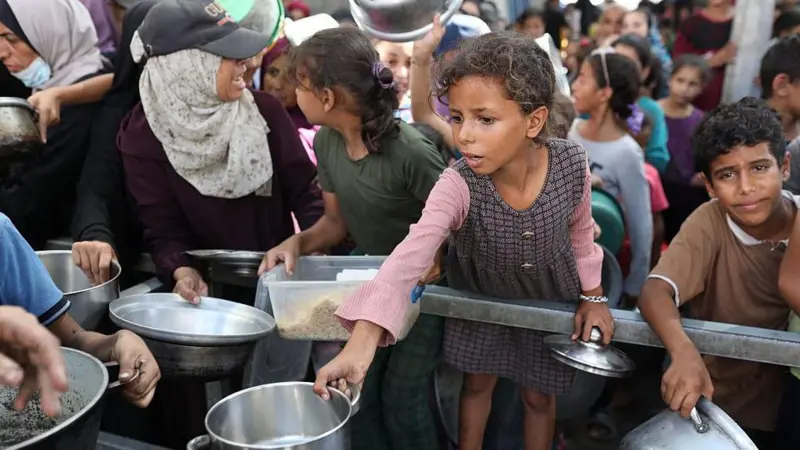News Flash

GENEVA, Nov 4, 2025 (BSS/AFP) - The United Nations said Tuesday it had distributed food parcels to one million people in Gaza since the ceasefire, but warned it was still in a race to save lives.
The UN's World Food Programme stressed all crossing points into the Gaza Strip should be opened to flood the famine-hit Palestinian territory with aid, adding that no reason was given why the northern crossings with Israel remained closed.
"Three and a half weeks into the ceasefire in Gaza, we have distributed food parcels to around one million people across the Gaza Strip," said the WFP's Middle East spokeswoman Abeer Etefa.
"That's part of the broad operation to push back hunger in Gaza," she told reporters in Geneva, speaking from Cairo.
WFP aims to reach 1.6 million people in the territory with parcels, which provide enough food for a family for 10 days.
However, to get operations running at the level required, "we really need more access, more border crossings to be opened and more access to key roads inside Gaza," said Etefa.
The US-brokered ceasefire between Israel and Hamas came into effect on October 10.
Etefa described how the WFP was scaling up operations in Gaza and opened 44 of the 145 food distribution points it hopes to run.
An estimated 700,000 people are now receiving fresh bread daily, supplied through 17 WFP-supported bakeries: nine in south and central Gaza, and eight in the north.
The agency is hoping to get 25 up and running.
Etefa said while food consumption levels had increased slightly thanks to the humanitarian aid and commercial trucks now allowed to enter, they remained well below pre-conflict levels.
Furthermore, at this stage, households are still eating mostly cereals and pulses, with meat, eggs, vegetables and fruit being consumed "extremely rarely".
Nour Hammad, WFP's spokeswoman in Gaza, said commercial food prices were still beyond the reach of most families, saying an apple now costs as much as a kilogramme of apples did before the war broke out in October 2023.
The WFP said it had only been able to bring in roughly half of what was required to meet the food needs of people in Gaza.
"The needs are overwhelming," said Etefa, adding: "We are in a race to save lives."
She said WFP trucks were still only coming through the Kerem Shalom and Kissufim crossings, severely limiting the amount of aid that can enter Gaza, and posing a major obstacle to getting aid to the north.
"We actually haven't been given clear answers on why the northern crossing points are still closed," she said.